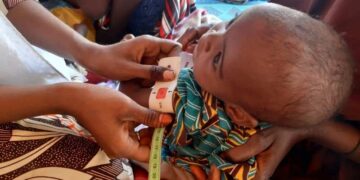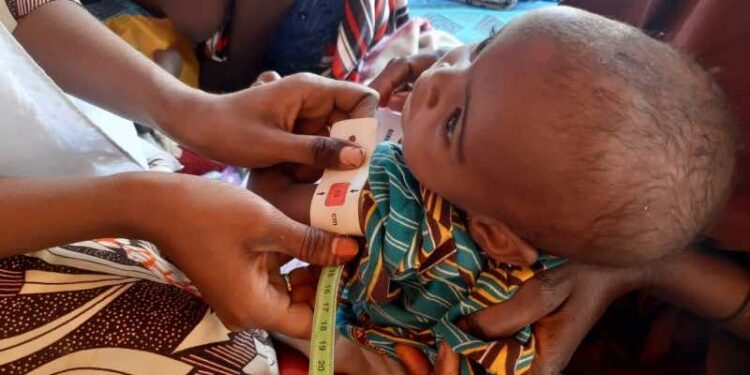By Ebi Kesiena
A recent survey conducted by Save the Children, has revealed that approximately 420,000 babies were born undernourished in Kenya this year.
While, projections indicate that a staggering 942,000 children under the age of five and 135,000 pregnant women and breastfeeding mothers are acutely malnourished and urgently require treatment.
According to Save the Children’s report, identifies Kenya as one of the top 10 countries where at least 25 percent of the population is grappling with chronic hunger. Economic instability, conflicts, and recurrent climate shocks have been cited as key contributors to this distressing situation.
Comparing the current figures to a decade ago, when the number of undernourished babies was 261,000, the hunger rate has witnessed a significant increase from 18.1 percent to 27.8 percent. Other nations affected by this crisis include the Democratic Republic of Congo, Uganda, Madagascar, Afghanistan, Somalia, Mozambique, Yemen, Chad, and Zambia.
Analysing the survey on Wednesday, Yvonne Arunga, Save the Children’s Country Director for Kenya and Madagascar, emphasized that although substantial progress had been made in the past to combat global hunger, this progress began to decline significantly in 2019, with economic instability, conflicts and climate crisis identified as the primary culprits.
Arunga stated, “As more children come into the world, they are being born into a world where extreme weather events have become more frequent than ever. Sadly, the future of these children is already compromised before they even take their first breath. We must protect their childhoods and futures before it’s too late.”
Against this, Save the Children is calling for increased collaboration, dialogue, and investment across sectors to strengthen response planning and implementation, emphasizing the need to act early and prevent predictable shocks from escalating into crises.
“Hunger is not a lost cause, we have the power to significantly reduce the number of malnourished children right now, like we have in the past. However, if we do not tackle the root causes of hunger and malnutrition, we will continue to see the reversal of progress made for children. This is a global hunger crisis, and it requires a global solution but starting closer home here in Kenya.” Arunga said.
It is further calling on leaders to scale up low-cost interventions to prevent and treat malnutrition. These include community-based treatment for acute malnutrition, supporting and protecting breastfeeding and investing in community and primary-level healthcare.
Globally, it is estimated that at least 17.6 million children will be born into hunger this year, or about 33 children a minute, which is a 22 per cent jump from a decade ago.



































